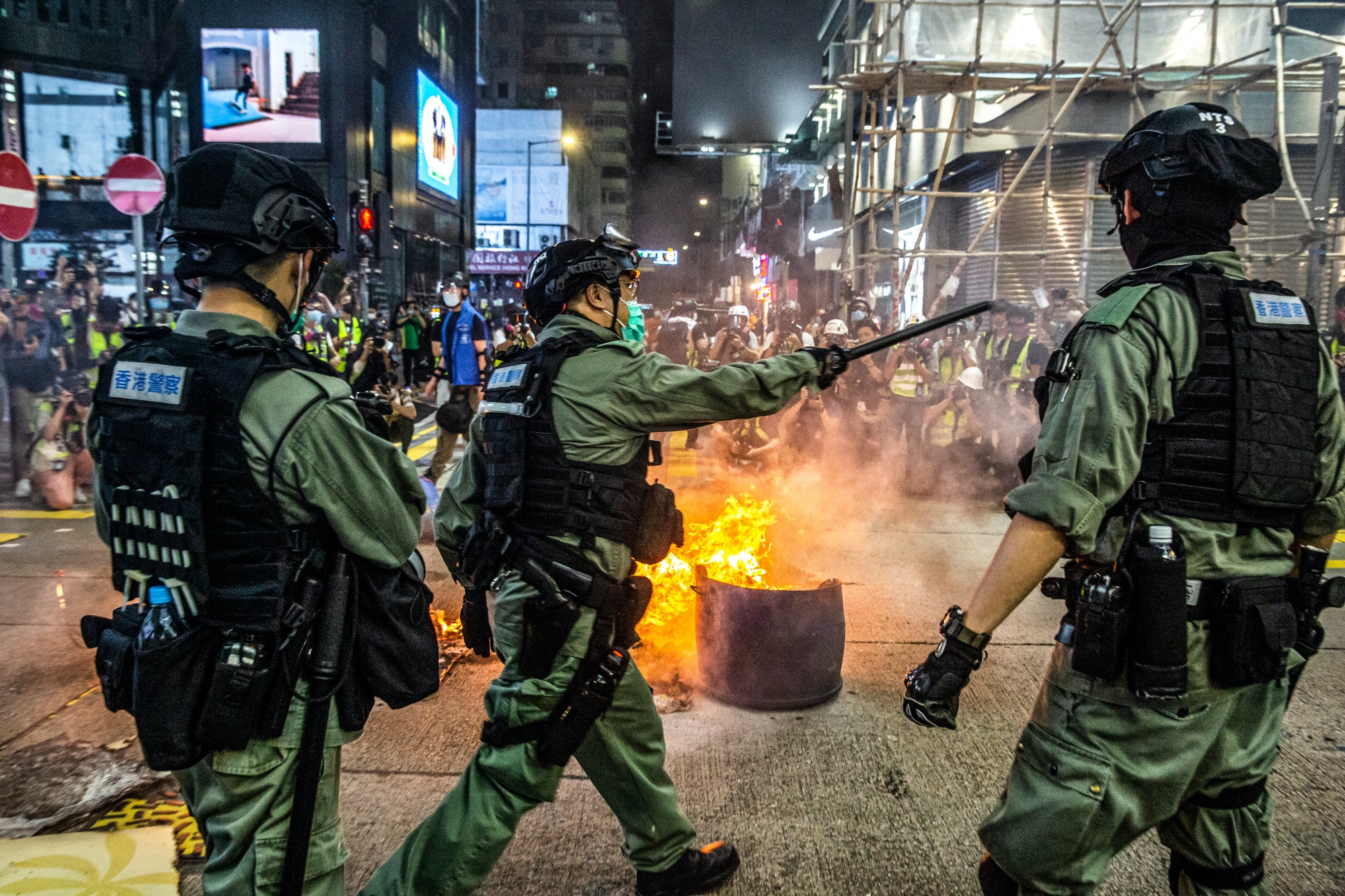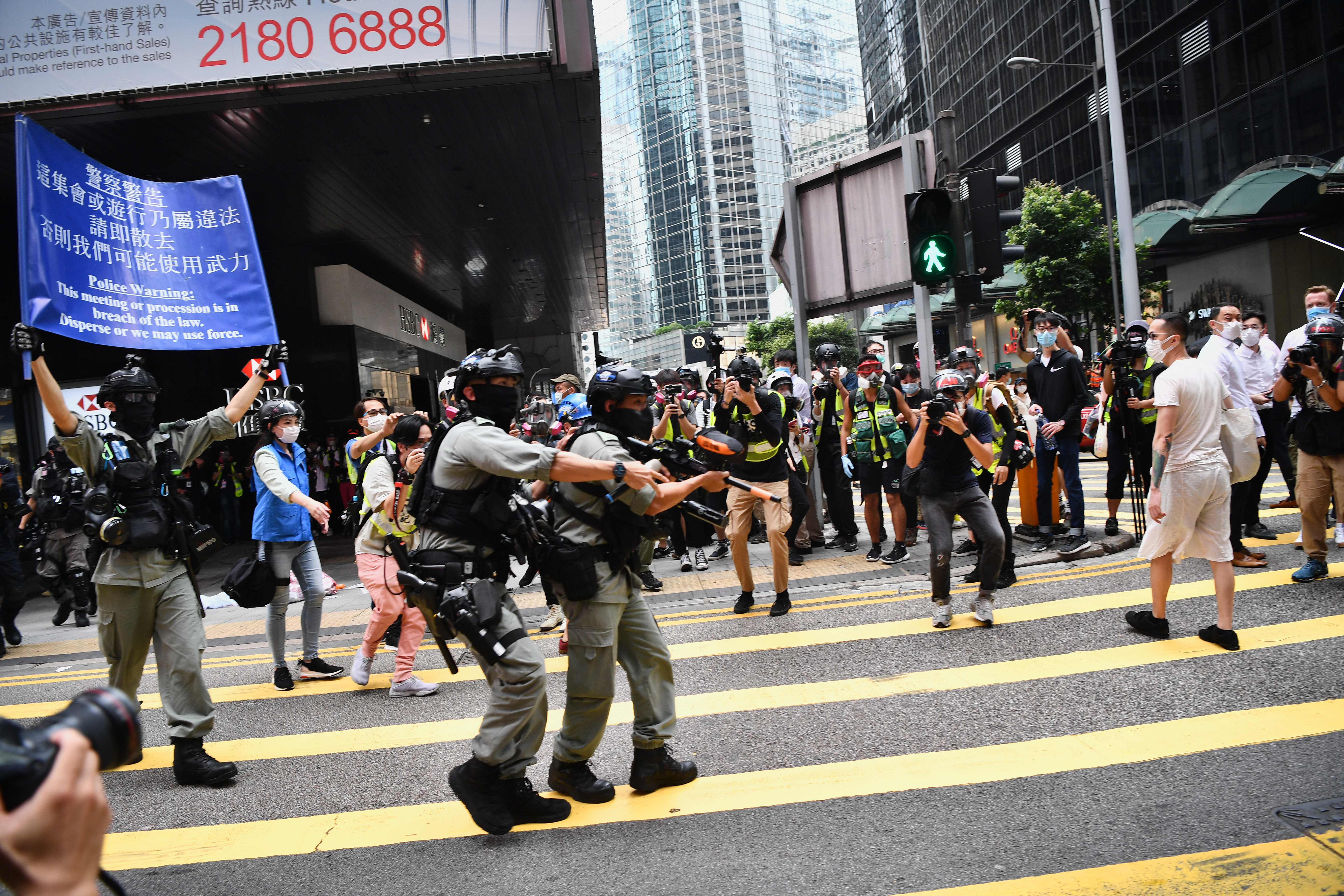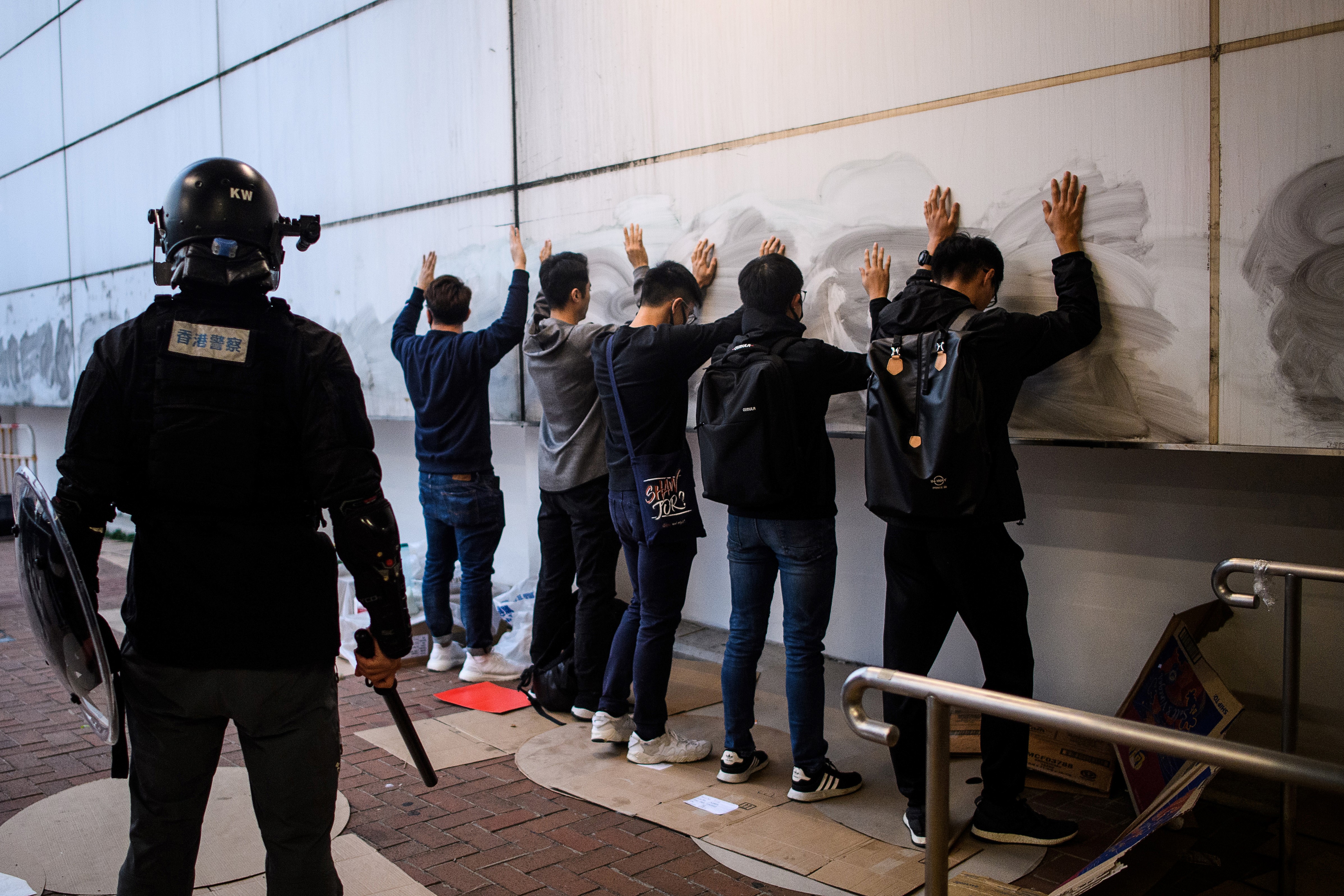A version of this article originally appeared on VICE Asia.
On May 28, China's parliament passed a resolution to develop legislation to “safeguard national security” in Hong Kong. The ruling stipulates that Beijing will entirely bypass the local legislature in Hong Kong and instead implement the notorious “national security law” here. Combined, the act and the law aim to crack down on the momentum of Hong Kong's democratic movement that has been building since June 2019.
Taking advantage of the global pandemic that originated on its soil, Beijing has commenced an incurious descent on Hong Kong’s autonomy while the rest of the world’s hands are tied by COVID-19. In April, it attempted to institutionalize “supervisory power” of China’s Liaison Office. Now, Beijing further tightens its grip over the city by circumventing the Legislative Council of Hong Kong, inserting the national security law directly into Annex III of the Basic law. The law will be immediately effective after it is promulgated by the Hong Kong government.
Beijing, amid the virus, is desperate to have Hong Kong fully under control. As its propaganda massively backfired and Taiwan is increasingly receiving global praise, it finds itself no longer able to maintain its influence under the new cold war. Hong Kong, a channel for foreign funds and investments, is of vital strategic importance for Beijing. Yet, to Beijing’s dismay, Hong Kong-ers have repeatedly demonstrated their reluctance to comply with its dictatorship since the handover, especially during the movement last year.
Implementing the national security law is an act of retaliation towards the movement, an attempt to dissolve its main components: street protests, local electoral institutions, and international advocacy efforts. Beijing is targeting protestors and electoral candidates and attempting to cut Hong Kong off from support from the international community.
All protests and other calls for democracy in the city, regardless of their nature, will now be classified as attempts to subvert China's authority. Activists who have sought to garner international support will be barred from elections or imprisoned; local and international non-governmental organizations will potentially be subject to prosecution; any criticism against China will be conceived as an act of succession; dissenters and human rights defenders are likely to be arrested in secret by the city's new national security body.
In sum, the law seeks to rip out all democratic aspirations in Hong Kong.

The price to pay
The law not only deprives Hong Kong of its last bit of autonomy and freedom, but also hinders the rest of the world. Hong Kong’s role as an international financial hub and safe harbor for dissidents against China are the reason why it is so important globally. China has broken its promise of “one country, two system” and “high degree of autonomy” in the Sino-British Joint Declaration that was ratified under international law. Top-down insertion of the national security law is a blatant violation of international law and threatens the world to remain silent.

The world can no longer afford an unprincipled and failed “change for trade policy” towards China. The International community has consistently prioritized trade with China over other enlightened interests, like democracy and human rights, ignoring the horrible deeds Beijing has systematically committed: incarcerating 1.5 million Uyghurs and Kazakhs in interment and labor camps, covering-up details on COVID-19, threatening Taiwan with military annexation, and suppressing Hong Kong’s democracy movement.
The high price for appeasing and being overly dependent on China is that it it endangers world peace, security, and the public health of the rest of the world. The time has come for states to ask themselves if they should still actively support such a regime.

The world must free itself from the illusion that China would liberalize and democratize itself as a result of enterprises’ pockets filled with Chinese money through trade. China has violated the Joint Declaration, and broken international law. Expecting China to abide by rules and trade fairly is overly optimistic and borderline naïve.
Stand with Hong Kong
Hong Kong-ers have demonstrated incorruptible will in fighting against the authoritarian rule of Beijing. Forfeiting Hong Kong is not an option. This is the place we call home, and there is no future for us if our home is compromised. The fight for democracy and human rights is one both Hong Kong-ers and the world must win.
We call upon stakeholders from all sectors to express opposition against the new law. Given that the law is highly controversial, the leaders of the free world ought to consider imposing sanctions on China and reconsider whether Hong Kong’s special trade status can still be upheld, as once the law is in effect, Hong Kong will be assimilated into another Chinese city under CCP’s authoritarian regime — without rule of law nor human rights protections.
Hong Kong will possibly lose its attractiveness towards foreign investments, and we urge companies to voice their opposition towards the passing of the law. Hong Kong can only maintain business interests if it maintains its autonomy.
We ask the world, once again: Stand with Hong Kong.
Find Joshua Wong and Glacier Kwong on Twitter.
Joshua Wong is the secretary general of Demosisto. Glacier Kwong is a digital rights and political activist in Hong Kong.
from VICE https://ift.tt/3c7c23P
via cheap web hosting
No comments:
Post a Comment